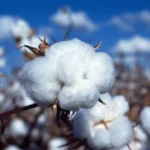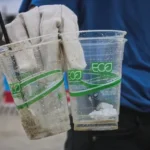As consumers become more conscious about their environmental impact, the demand for eco-friendly fabrics has been on the rise. But how can we be sure that the fabrics we purchase are truly sustainable and produced according to fair labor practices? In this article, we will explore the Certification For Eco-Friendly Fabrics that exist to be sure that the fabrics we purchase are truly sustainable and produced according to fair labor practices.
- The Popularity of a Certification For Eco-Friendly Fabrics
- The Goal of Certification Organizations and Their Funding
- Ensuring Integrity in Certification Processes
- Organizations that issue The Certification for Eco-Friendly Fabrics
- Certifications for Ethical AND Eco-Friendly Practices
- Certification Requirements Can Vary Depending on the Type of Fabric and its Intended Use
- Climate Neutral or Carbon Neutral certifications
- Conclusion
- FAQ: Answering Your Questions
The Popularity of a Certification For Eco-Friendly Fabrics
Over the past 20 years, the demand for a Certification for Eco-Friendly Fabrics has grown significantly. As people become more aware of the environmental impact of the textile industry, there has been a global shift towards more sustainable practices. This increased demand has led to a rise in the number of fabric certifications provided. While the exact number of certifications issued may vary across programs, it is safe to say that the growth has been substantial.
The Goal of Certification Organizations and Their Funding
The goal of eco-friendly fabric certification organizations is to promote and ensure sustainability in the textile industry. They aim to establish transparent and reliable standards for manufacturers to follow, with the ultimate aim of reducing the industry’s ecological footprint. Certification organizations raise funds through various means, such as certification fees, membership fees, and donations. These financial resources are used to maintain and improve the certification programs, conduct audits and inspections, and support research and development initiatives.
Eco-friendly fabric certifications are more than just labels; they are a promise of sustainability, ethics, and a healthier world.
Ensuring Integrity in Certification Processes
To prevent corruption and maintain integrity, certification organizations often implement robust audit and verification processes. Independent third-party auditors are typically hired to conduct on-site inspections and assessments of manufacturing facilities. These auditors are experienced professionals who follow strict guidelines and protocols to ensure compliance with certification requirements. Additionally, these organizations may have internal mechanisms for reporting and addressing any potential corrupt practices, such as anonymous tip lines and whistleblower protection policies.
Related post: THE TRUTH ABOUT ECO-FRIENDLY FABRICS
Organizations that issue The Certification for Eco-Friendly Fabrics
- OEKO-TEX Standard: The OEKO-TEX Standard 100 certification focuses on the safety of textiles and aims to ensure that fabrics do not contain harmful levels of chemicals that could be hazardous to human health. OEKO-TEX certification is based on testing for a wide range of substances, including pesticides, heavy metals, and formaldehyde. Manufacturers are required to meet specific criteria related to these substances to achieve certification.
- Fair Trade: Fair Trade certifications for textiles and clothing are issued by Fair Trade organizations like Fair Trade USA and Fairtrade International, ensuring ethical and sustainable production practices. Fair trade certifications ensure that the workers involved in fabric production receive fair wages, work in safe conditions, and are not subjected to exploitation. These certifications aim to create transparency throughout the supply chain and empower the workers who contribute to the creation of these fabrics. Look for fair trade labels such as Fairtrade Certified Cotton, Fair Trade Certified, or Fair for Life to support ethical practices in the industry.
- Low-Impact Dye Certification: Organizations like Bluesign and similar certification bodies may assess and certify dyes and chemicals used in textiles for their low environmental impact.
- Biodegradable Textiles: While specific biodegradable textile certifications may vary, they could be evaluated by organizations that specialize in environmental standards.
- Eco-Responsible Materials: Various organizations and initiatives promote eco-responsible materials, including the Sustainable Apparel Coalition (SAC) and Textile Exchange.
- Sustainable Fashion Certification: Certifications such as the Sustainable Apparel Coalition’s Higg Index evaluate the sustainability of fashion and textiles.
- Closed-Loop Fabric Certification: Closed-loop fabric certifications might be issued by organizations that focus on sustainable manufacturing practices and circular economy principles.
- Natural Fiber Certification: For textiles made from natural fibers like organic cotton, certifications might be issued by organizations like GOTS or specific organic certifications.
- Environmentally Preferred Materials: Certifications for environmentally preferred materials may vary and could be issued by organizations promoting sustainable choices.
Certifications for Ethical AND Eco-Friendly Practices
Apart from focusing on eco-friendly aspects, it is equally important to consider fair trade practices in the textile industry. When it comes to certifications, there are a multitude of options available that not only ensure certain standards but also emphasize eco-friendly and sustainable practices. These certifications are designed to evaluate and recognize businesses and organizations that make a commitment to making a positive impact on social fairness, renewable energy, reuse of materials, animal welfare, carbon- and water management, biodiversity, non-GMO, and soil health.
A well-known certification is the Forest Stewardship Council (FSC) certification. The FSC is an international non-profit organization that promotes responsible forest management. Products carrying the FSC certification have been sourced from forests that meet rigorous environmental, social, and economic standards. By choosing products with the FSC label, consumers can support sustainable forest practices and contribute to the conservation of biodiversity and the livelihoods of local communities.
The power of eco-friendly fabric certifications lies in their ability to transform the textile industry, one sustainable thread at a time.
In the realm of food and agriculture, the Certified Organic label has gained significant recognition. Certified Organic labels are issued by USDA, NSF, and EU. Certified Organic products are produced without synthetic pesticides, genetically modified organisms (GMOs), or artificial additives. Instead, organic farmers focus on agroecological practices that prioritize soil health, biodiversity, and animal welfare. By choosing organic produce, consumers can support sustainable farming methods that protect the environment and promote healthy ecosystems.
By seeking out and supporting products and organizations with a certification for eco-friendly fabrics and recognized green labels, we can all play a role in creating a more environmentally conscious and sustainable future. The following certifications aim to provide consumers with a more holistic understanding of a product’s sustainability and eco-friendliness:
- GOTS (Global Organic Textile Standard): One of the most recognized certification bodies in the textile industry is the Global Organic Textile Standard (GOTS). GOTS is a worldwide leading textile processing standard for organic fibers. This certification ensures that the fabrics are made from organic materials, grown without the use of harmful chemicals, genetically modified organisms (GMOs), and in compliance with strict social criteria. GOTS covers every step of the production process, from harvesting the raw materials to the final product, ensuring transparency and traceability. It’s issued by multiple organizations worldwide, including Control Union Certifications, Ecocert, and Soil Association Certification.
- Cradle to Cradle Certified: This certification evaluates products holistically, considering material health, material reutilization, renewable energy and carbon management, water stewardship, and social fairness.

- Global Recycled Standard (GRS): GRS certification ensures the traceability and integrity of recycled materials in a product, covering both environmental and social criteria.
- Sustainable Apparel Coalition (SAC): SAC’s Higg Index assesses and scores the environmental and social performance of apparel and footwear products, encompassing multiple sustainability factors.
- Bluesign: Bluesign evaluates the environmental impact of the entire textile supply chain, including chemicals, materials, processes, and products.
Certification Requirements Can Vary Depending on the Type of Fabric and its Intended Use
The requirements of a certification for eco-friendly fabrics can vary depending on the type of fabric and its intended use. For example, the criteria for towels may differ from those for bedding. Towels may need to meet specific absorbency and durability standards, while bedding may require additional comfort specifications. Therefore, it’s essential for manufacturers and consumers to research and understand the specific requirements for each certification and fabric type.
Climate Neutral or Carbon Neutral certifications
There are several well-known certification bodies and organizations that offer Climate Neutral or Carbon Neutral certifications. Please keep in mind that the specific requirements and criteria can vary among these organizations, so it’s essential to research each one to determine which aligns best with your needs and values. Here are some examples of certification bodies and programs:
- Climate Neutral Certified: The Climate Neutral Certified program provides certification for companies and brands that commit to measuring, reducing, and offsetting their carbon emissions. This certification is aimed at helping businesses take climate action and promote their efforts to consumers.
- The CarbonNeutral Protocol: This program, managed by Natural Capital Partners, provides a widely recognized CarbonNeutral certification for organizations that have reduced and offset their carbon emissions. It covers various sectors, including businesses, events, and products.
- PAS 2060: This is a British standard for achieving carbon neutrality, which can be certified by various accredited bodies. It provides guidance on measuring, reducing, and offsetting carbon emissions.
- Climate Action Reserve: The Climate Action Reserve offers carbon offset certification for projects that reduce greenhouse gas emissions in sectors like forestry, agriculture, and renewable energy. Their certification helps organizations support verified emissions reduction projects.
- VCS (Verified Carbon Standard): VCS is a leading international standard for certifying greenhouse gas emission reduction projects and carbon offsets. It focuses on a wide range of project types, from renewable energy to reforestation.
- The Gold Standard: The Gold Standard for the Global Goals is a certification standard that focuses on climate and sustainable development. It certifies projects that not only reduce emissions but also contribute to sustainable development goals.
- UNFCCC Clean Development Mechanism (CDM): While not labeled as “Climate Neutral,” the CDM, established under the United Nations Framework Convention on Climate Change (UNFCCC), certifies emission reduction projects in developing countries that contribute to the global climate effort.
- ISO 14064: This is a family of international standards for greenhouse gas accounting and verification. While ISO 14064 does not issue a “Climate Neutral” label, it provides a framework for organizations to measure, report, and verify their greenhouse gas emissions.
Conclusion
Choosing eco-friendly fabrics not only contributes to a greener future, but also supports fair labor practices in the fashion and textile industry. By choosing fabrics certified by organizations like GOTS, Cradle to Cradle, and Fair Trade certifications, you can be more confident in the sustainability and ethics of your fabric choices. These certifications provide transparency, traceability, and assurance that the fabrics you purchase have been produced with a high level of environmental and social responsibility. So, next time you’re shopping for eco-friendly fabrics, don’t forget to look for a certification for eco-friendly fabrics and other recognized green labels as a guide towards making more sustainable and ethical choices.
FAQ: Answering Your Questions
What is a Certification For Eco-Friendly Fabrics, and why are they important?
A Certification for Eco-Friendly Fabrics is a credential awarded to textiles and fabrics that meet specific environmental and ethical standards. These certifications are essential because they help consumers make informed choices, promote sustainable production practices, and contribute to a healthier planet by reducing the negative impacts of the textile industry.
How can I identify eco-friendly fabrics?
Look for labels or tags on textile products that explicitly mention the certification, such as “GOTS Certified Organic” or “OEKO-TEX Standard 100 Certified.” Brands often proudly display these certifications on their products to make it easier for consumers to make eco-friendly choices.
the Global Organic Textile Standard (GOTS) certification, What is it and what is its focus?
GOTS is a renowned certification that primarily focuses on organic textiles. It ensures that textiles meet strict criteria for organic fiber sourcing, chemical use reduction, and socially responsible manufacturing. GOTS also considers factors such as fair labor practices and the prohibition of harmful chemicals.
What is the OEKO-TEX Standard 100 certification and its area of emphasis?
OEKO-TEX Standard 100 is primarily concerned with the safety of textiles for consumers. It tests textiles for harmful substances and chemicals, ensuring that they are free from substances that can harm human health. While it doesn’t specifically address environmental sustainability, it does contribute to safer and healthier textiles.
the Cradle to Cradle (C2C) certification, What is it and what does it focus on?
The Cradle to Cradle certification takes a holistic approach, focusing on both environmental and social sustainability. It assesses textiles based on material health, material reutilization, renewable energy, water stewardship, and social fairness. C2C aims to create a closed-loop, sustainable production cycle.
What is the Focus of the Fair Trade certification for fabrics?
The Fair Trade certification emphasizes fair labor practices and social responsibility in textile production. It ensures that workers receive fair wages, work in safe conditions, and have a voice in their workplaces. While it doesn’t focus exclusively on eco-friendliness, it contributes to ethical and sustainable fabric production.
IS There a Certification For Eco-Friendly Fabrics that focuses on specific aspects like recycled materials?
Yes, certifications like the Global Recycled Standard (GRS) focus on textiles made from recycled materials. GRS verifies the use of recycled content and tracks its source to ensure sustainability. This certification encourages the textile industry to reduce waste and promote recycling.
IS There a Certification For Eco-Friendly Fabrics that focus on the sustainable disposal and recycling of textile waste?
Yes, some certifications, like the Textile Exchange’s Recycled Claim Standard (RCS), specifically address the sustainable disposal and recycling of textile waste. They encourage the responsible management of textile end-of-life processes, reducing the environmental impact of discarded textiles.
Can smaller, boutique fashion brands also obtain eco-friendly fabric certifications?
Absolutely! Eco-friendly fabric certifications are accessible to businesses of all sizes, including smaller boutique brands. Many certification programs are designed to accommodate a wide range of textile producers, making it possible for smaller businesses to participate in sustainable practices.




 Explore Best Value: Unique, Comfy Pet Products for Less
Explore Best Value: Unique, Comfy Pet Products for Less  Top Luxury Linen Sheets Eco-Friendly And For Any Budget
Top Luxury Linen Sheets Eco-Friendly And For Any Budget  Cracking the Thread Count Code of Bed Sheets
Cracking the Thread Count Code of Bed Sheets